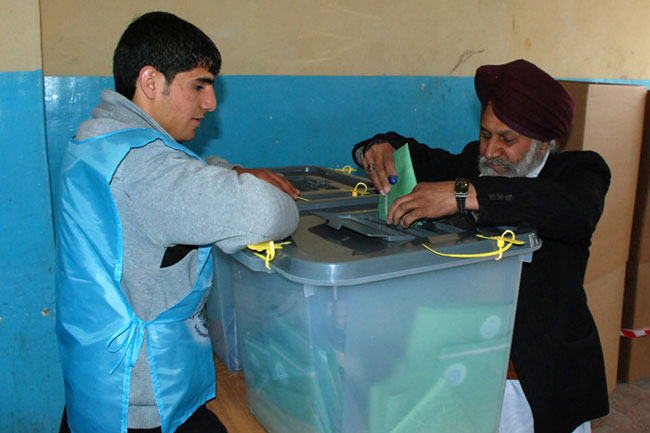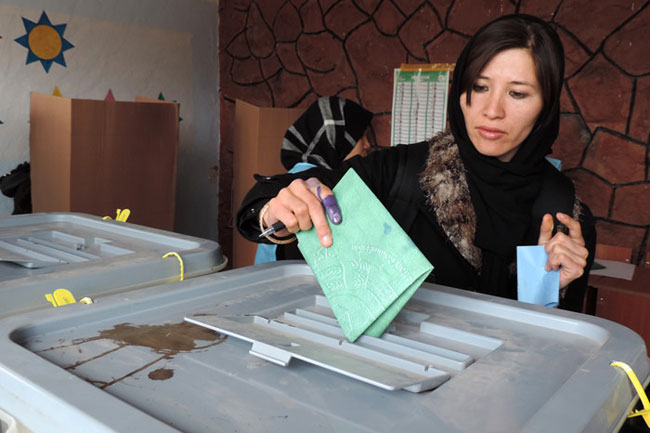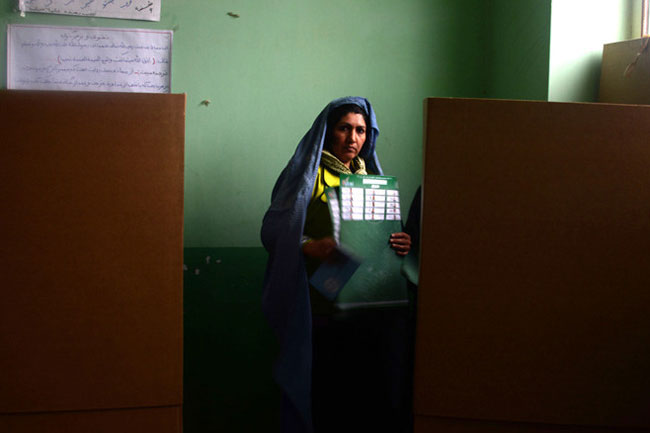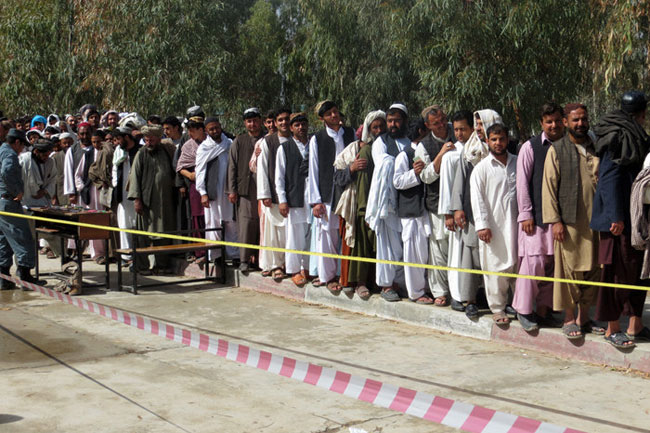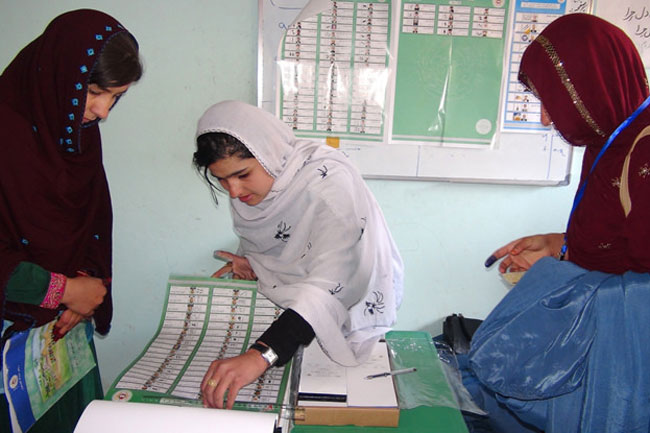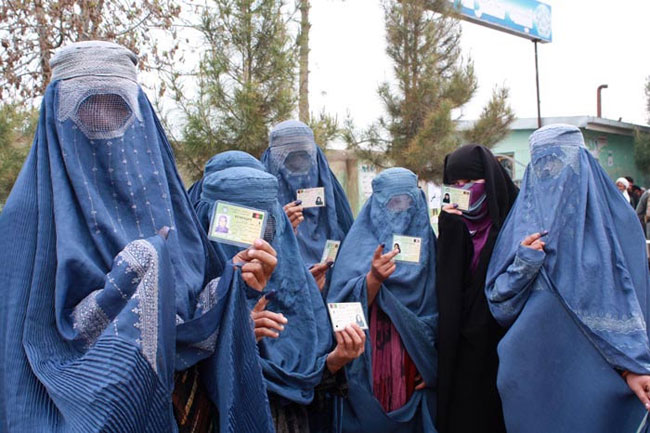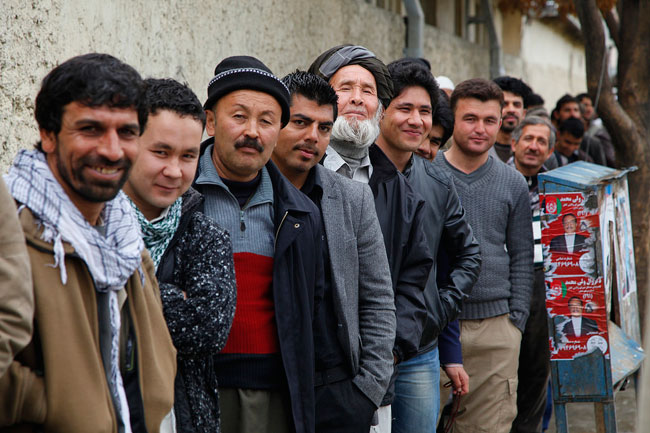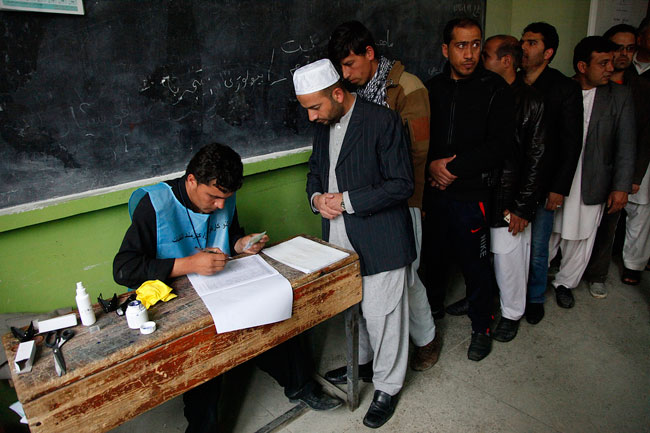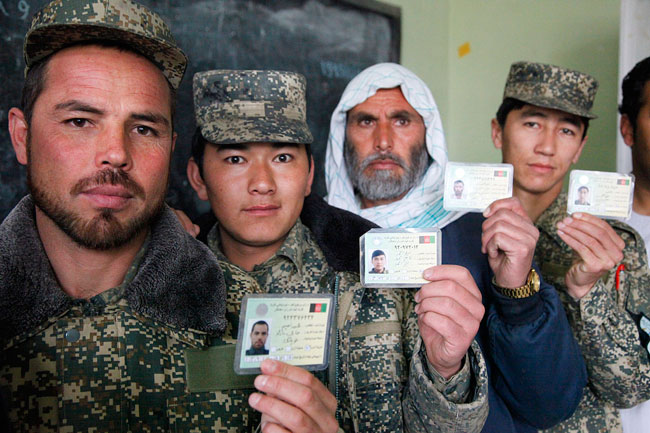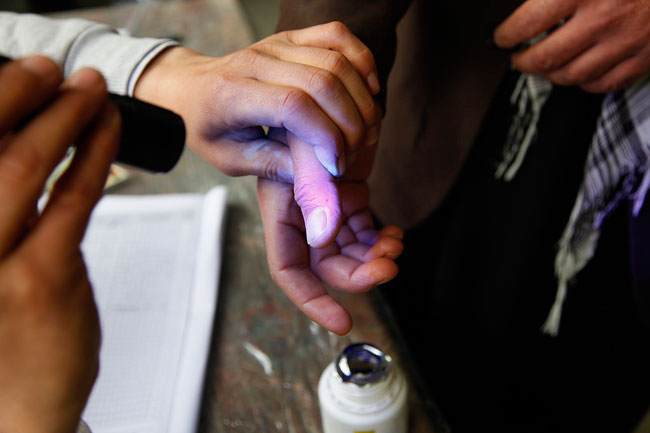UN congratulates Afghan voters for taking part in 'historic' elections
“Today was a good day for the future of a stable and unified Afghanistan. Ordinary Afghans turned out to vote in remarkable numbers, defying Taliban attacks and threats,” the Secretary-General's Special Representative for Afghanistan, Ján Kubiš, said in a statement.
“Often in long queues and bad weather, voters patiently waited to exercise their basic human right to vote. They chose to determine the future direction of the country by political means and resolutely rejected the enemies of peace and democracy,” he added.
Afghans thronged to polling stations, which opened their doors at 7:00 a.m. today, to cast their ballots for a successor to President Hamid Karzai and members of 34 provincial councils. The polls will result in the first democratic transfer of power from one elected leader to another in the country.
During a visit to a polling centre in the capital, Kabul, Mr. Kubiš, had voiced the hope that people would come out and vote for their candidates – whoever they may be – in good numbers. “I hope that at the end of the day, we will be able to say this is really a historic moment, opening a totally new chapter for the country.”
Shukria, a resident of Kabul, expressed her hopes for the country's next leader. “I want my next president to improve security, creating a better environment for us to live in, as well as bring a higher standard of education to the country.”
According to Afghanistan's Independent Election Commission (IEC), polling took place in 6,218 polling centres across the country, while a further 205 polling centres – that were originally scheduled to be kept open – were closed down due to the failure to dispatch necessary polling materials in light of adverse security developments.
“I am hopeful for the future – I have lots of children and I vote for the future of my children,” said 70-year-old Haji Awlia Qul, in the north-eastern province of Kunduz. “It doesn't matter even if I die for this. The important thing is the bright future of my children. I vote for their better future and for the well-being of my grandchildren.”
Unlike the countries previous elections, which were conducted jointly by the Afghan authorities and the UN, the world body does not formally have a role in these polls, leaving Afghan authorities to organize and manage the entire electoral process.
The UN – primarily through the UN Assistance Mission in Afghanistan (UNAMA) and the UN Development Programme (UNDP) – has been advising on election-related matters and providing capacity building and technical support.
The members of the UN Security Council issued a statement on Saturday, welcoming the holding of the elections, and reiterating the importance of these “historic” polls to Afghanistan's transition and democratic development.
In a related development, the head of the UN Educational, Scientific and Cultural Organization (UNESCO) on Saturday expressed shock at the attack that took place on the eve of the polls in which Associated Press photojournalist Anja Niedringhaus was killed and reporter Kathy Gannon was injured.
Ms. Niedringhaus, 48, and Ms. Gannon, 60, were traveling in a convoy of election workers when they were shot by a policeman in the town of Khost near the border with Pakistan, according to a UNESCO news release.
“Ms. Niedringhaus was a distinguished photo journalist who devoted her life to recording and publicizing the difficulties faced by people living in conflict situations,” UNESCO Director-General Irina Bokova said. “Her death is a loss for us all and an attack on the people of Afghanistan as they struggle to build a better democratic future for their country.”



